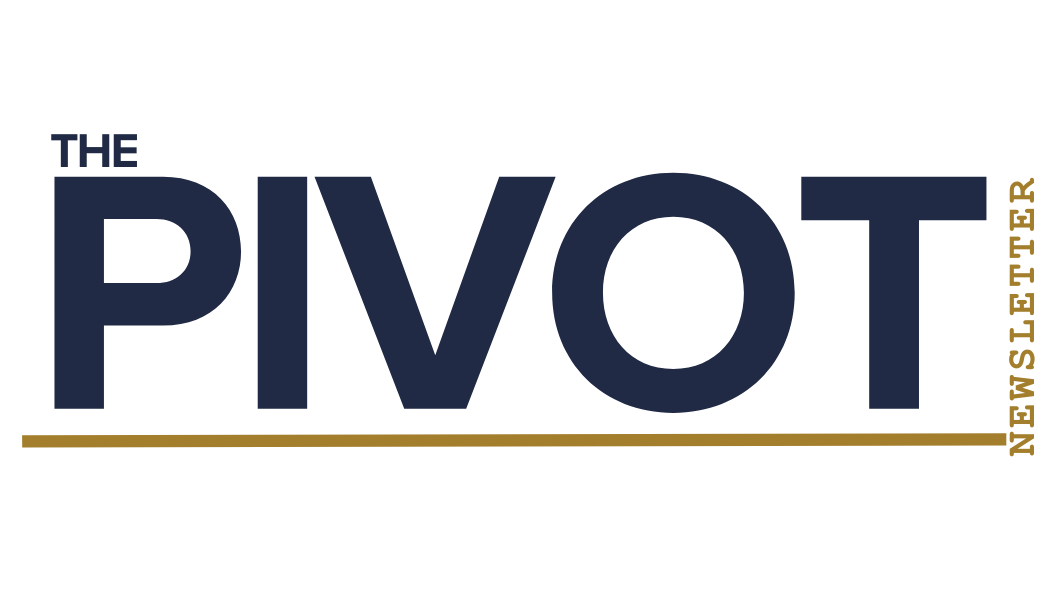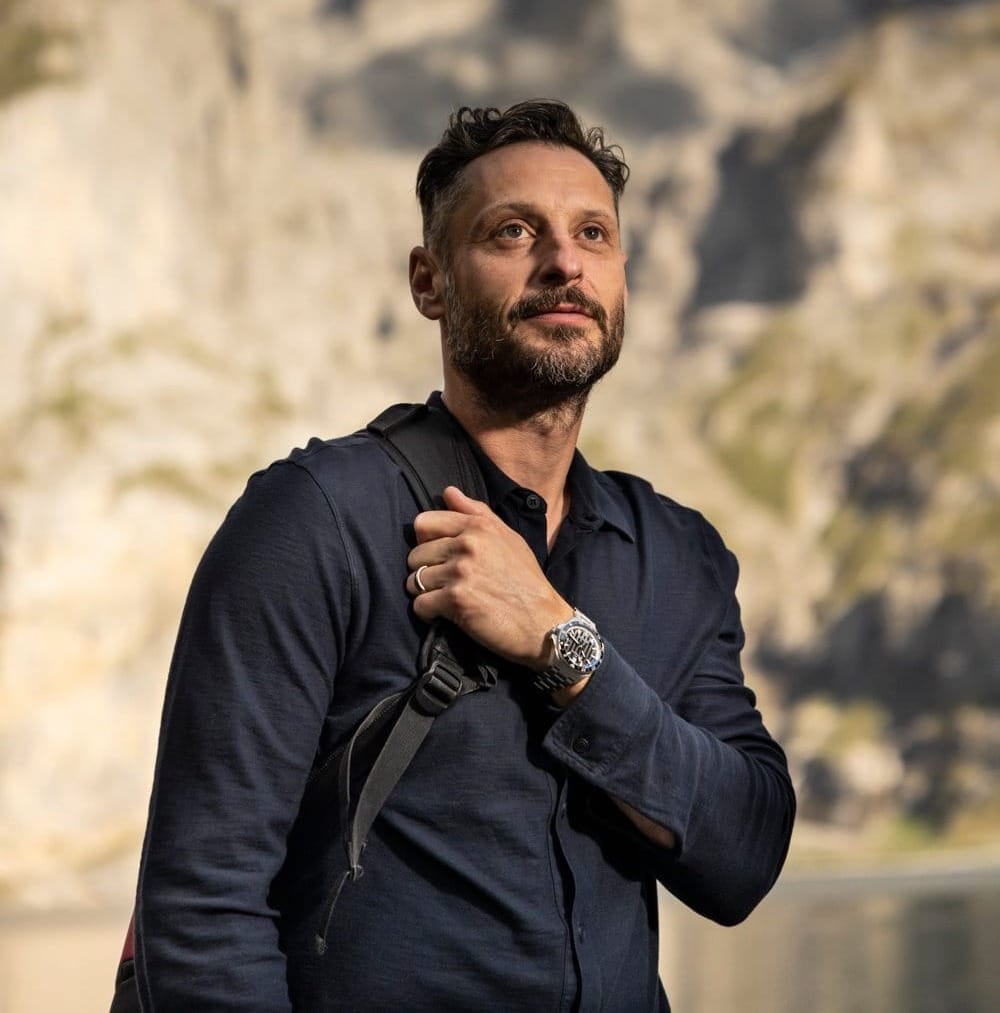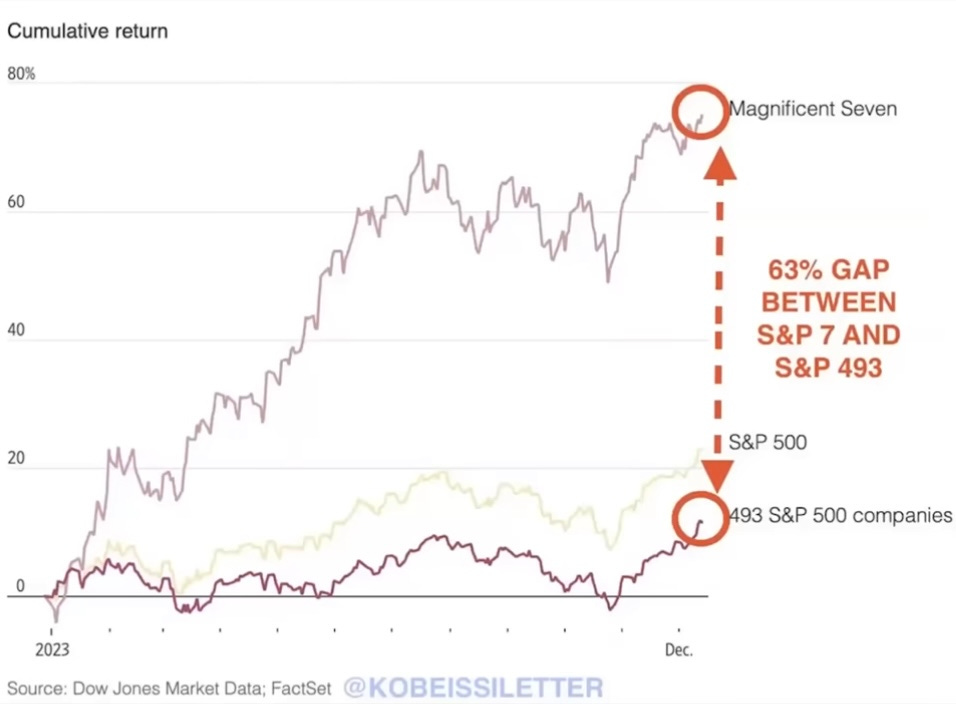Pivot #9: Mark Streit's watches, be an athlete, risk/reward

1st Period - Financial athlete
In prior newsletters, I’ve alluded to the challenge of marketing hockey experience in a way that is clearly communicable and articulates to the layperson hiring manager the characteristics hockey players possess. One of the phrases I’ve used in interviews to help communicate my skill set is “financial athlete”. For others it may be “operational athlete” or “marketing athlete”; pretty much “x” athlete.
Most people intuitively understand the meaning of the term and it’s a creative term that is not often used. It stands out in the pack. Connecting industry + “athlete” implies you have a certain “figure-outableness”. You have the ability to just get things done. In sports, you’ve probably heard coaches say, “just be an athlete”, meaning don’t overthink, just rely on your skill to find a way to accomplish the goal.
In an interview, a common type of question is “how would you handle ‘xyz’ problem?” or “how would you go about working on this project?” Answer something like, “Great question Sally, when I come across problems, I think of myself as a finance athlete of sorts and I’m willing to go about solving the problem in the most efficient and highest value-add for the team.” Or maybe you’re asked “what’s your five year goal?” A good answer might be, “Another great question Sally, over the next five years I’m just focused on becoming the best finance athlete I can become. I want to work on building up all aspects of being a good finance professional.” That communicates you, as a job candidate, have a certain “figure-outableness” to become better, build your skills and that’s your focus. You are promising to become a more valuable team member.
Now, that sounds a little corny, typing out those answers, but I promise I’ve said it in an effective, serious manner. Hockey players are good at figuring out problems. If an opponent hits with a new forecheck, read and react to get through it. Same for industry. By stating your capable of being an industry athlete, implies you’re a problem solver.
2nd Period - Risk Reward
I came across this graph and thought it was great at visualizing the risk of entrepreneurship. Note the y-axis is in log scale, in other words, each unit increase is 10x or ten-fold. For me, the takeaway is in the elbow of the red line, where W-2 income starts to turn into business income. For a small incremental change in risk, you can materially increase your financial reward. Only a small business is required. Inventing the next Amazon or Tesla is not required. Think about the risk-reward trade-off of W-2 income and business income.
3rd Period - Mark Streit’s Watches

Bank accounts, chocolate, and watches. Switzerland staples that bring the country global notoriety. Watches, in particular, are deeply embedded in the country's history, calling home to some of the most recognizable timepiece brands including Rolex, Breitling, Cartier, and Omega. Possibly more rare than the watches, is to find a Swiss watch company that is still a Swiss watch company. Many of the long-standing family-owned watch companies get passed through generations, but eventually succumb to cashing in on the family business. In 2017, after decades of family ownership, Ted Schneider sold Breitling to private equity giant, CVC Partners, for $870 million. The rich history of Swiss watch companies was slowly fading to an ideal of yesteryear. Therein lies the opportunity for Ben Kuffer, a victim of the PE take-over, who worked at Breitling for several years and came from a family tree of Swiss watchmakers.
Like a good Swiss-native, Mark Streit was a brand ambassador for Breitling, helping bring the luxury watch to NHL locker rooms in North America. The snappy blueliner befriended Kuffer through the years working together on the brand. Streit played his last NHL game for Montreal on October 17, 2017, and by happenstance the two friends were both “out of work”, looking for what’s next. That’s when Kuffer, Streit, and Ted Schneider (yes, the same Ted that sold for $820 million) decided to resurrect “Swiss made family tradition and independence” by starting luxury watch brand, Norqain.
Recently, Fox News caught up with Mark Streit, the Stanley Cup winning blue liner, to talk about the company and his transition out of hockey. Streit’s shares loads of insights. Let’s break down some of his quotes.
The End Comes - “The fact is at one point you're going to face the music and you're going to be done playing and there's a second life coming, a second professional life. And I think if you can prepare yourself, it's just a really big asset because you don't want to fall into a hole where you kind of lost”
Hit the Ground Running - “I went back to Switzerland and I had a few projects that were thrown at me and opportunities and so I started pretty much right away…I think it was a good thing, it kept me busy and because you miss the game and being around the guys and the travel and all that stuff, you miss it a lot. If you're involved in new projects and new challenges, it helps to transition to accepting the fact that your career is over – the professional hockey career”
The pieces of wisdom above are two sides of the same coin. The end is inevitable. Your hockey playing career will end, possibly more abruptly than expected. When that does happen you need to turn the page as soon as possible and channel your efforts into your next mission. If you come to grips that the end of hockey is inevitable, it will be less of a shock and you’ll be ready for the challenge to pivot. Like Streit says, working on projects immediately, prevents you from getting lost and wandering through post-playing life without purpose. Projects, new challenges, new endeavors, pursuits, whatever you want to call it will help add structure to your life, helping you avoid getting lost at the onset of your new life.
Get Involved. Earlier the better. - “I was an ambassador for Breitling for over 10 years. That's where I met my friend Ben Küffer”
Get involved in pursuits outside of hockey while you are playing hockey. The earlier you can do this, the better. Everyone sees Streit starting a watch company right after he retired, but no one sees that the watch company was 10 years in the making. Over the prior decade, Streit was building new relationships and learning about the watch industry. Most importantly, he met Kuffer, which culminated into the partnership they formed today. Just by being involved in stuff, creates serendipity in life that leads to opportunity. Fellow Swiss defenseman, Roman Josi, has since been brought into the fold at Norqin, which is another great example of a player getting involved in something while playing.
Develop New Passions - “Then you develop new passions for different things, business opportunities."
Whether Streit initially signed to be a Breitling ambassador for the money or because he already loved watches doesn’t matter. He either always had the passion and pursued it or developed a passion for luxury timepieces by being involved with the brand. The important takeaway is to develop passions outside of hockey. Look back at the Pivot Framework we’ve talked about in prior newsletters. Streit fits the framework perfectly by finding work that sits at the overlap of his passion for watches, his relationship skills and network, and consumer demand for timeless, handcrafted Swiss watches.
Try Something - “Obviously you got to kind of know how big the risk is, but I think if you don't try anything in life, nothing happens”
The biggest risk is doing nothing. People need to rewire their brains to conceptualize risk appropriately. If you do not take a risk in life, there is 100% probability you will not succeed and continue to dwell in your current despair. That may sound harsh, but everyone should take smart, well-planned risk. The risk Streit and I are both referring to is about putting yourself out there, unsure if it will work out. In Streit’s case it’s building a company. Norqin may be a terrible idea and a complete flop. Streit wasn’t sure at the onset, but Mark would never have the opportunity at success if he did not try.
Similarly, I’m building Pivot Hockey as a resource for hockey players to transition into their post-playing career. I think there is a need and I am passionate about the subject. The business may not work out, but I have to at least try and give myself the chance at success. If it doesn’t work, who cares? I’ll move on to the next thing.
Another insight to glean from this quote is that you do not need to know exactly what you want to do for the rest of your life immediately. It’s ok to trial and error or be open minded to various career paths. What you should not do is suffer from paralysis by analysis.You need to try something. At the very least it’s informative of what you do not like. Start going down a path towards something. Inch your way towards progress.
Work Hard - “You got to write your own story and get out there and work hard and use your network and kind of create a product and a story behind it that people admire. And I think that's where our biggest asset is."
In my view, many players are unwilling to work hard at their post-playing careers. It’s likely correlated with how far they’ve made it in their hockey career. It’s also possible, players are burnt out from intense dedication to their hockey craft year-after-year. The truth is hard work is required, but also goes a long way. You don’t need to be the smartest person in the room, but with some work ethic and a basic skill set, post-hockey success is achievable. Reframe post-career as a new opportunity that hopefully puts you in a refreshed state of mind, hungry to win again. The good news is working hard towards a pursuit is something innate with players that should come easy, once tapped into. It’s a finely chiseled tool in the tool belt of players. Make sure to use the same work ethic in your next pursuit as you did in hockey. It's a trait that will carry over.
Nobody Cares - “Once you're done, you're done playing and nobody really cares that much what you've been doing before and you got to start all over again. And I think that's a huge challenge not only for the player but the whole family”
I love the bluntness from Streit. Preaching the truth. No one cares. I’ve said it before and we saw the same sentiment echoed in the Danny DeKeyser case study. The fact you’re a hockey player will help you build some relationships and possibly get you in the door some places, but it will not keep you in the door. You need to perform well at the new initiative, not rely on your prior ability to make breakout passes.
Onus on the Player - “The initiative needs to come from the player."
Couldn’t agree more with the statement. Players need to be their own best advocate in looking out for their well-being after hockey. It’s no one else’s responsibility. There needs to be more resources to help with the transition, and Pivot aims to be part of the answer, but the initial desire to be successful after hockey needs to come from the player. Nothing can be forced. Even Mark Streit and his $41 million in NHL contracts knows it’s up to him. The same sentiment connects well with my prior newsletter on players taking responsibility for growing the game and Hockey Related Revenues.
OT
In researching Breitling, I came across the company’s use of blockchain technology to record watch ownership and allow owners access Breitling benefits. It’s pretty interesting and makes a lot of sense. This is one of the most intuitive and sensible use cases of blockchain and NFTs I’ve come across.
2OT
I learned Rolex is owned by the Hans Wildorf Foundation, a private family charitable trust that pays no taxes. Additional fun fact: Estimates suggest Rolex only makes up to 1,050,000 watches per year.
Game Notes
- The most watched television shows of 2023. The NFL is a machine. - Variety
- Where the job market is heading in 2024? Answer: slow cooling - WSJ
- Boldest Bitcoin predictions for 2024 - CNBC
- Red Sea shipping crisis. Definitely presents risk of rekindling inflation - CNBC
- Americans are cancelling streaming services - WSJ
- I have had it with all the streaming. I'll table the complaint for another day.
- Mr. Beasts comments on social media monetization - BI
- What a year of golf this guy had - WSJ
- 2023 Stock Performance: Mag 7 vs the rest of the S&P

Have a great start to the year. Let's hear your feedback. Comment below.

Member discussion